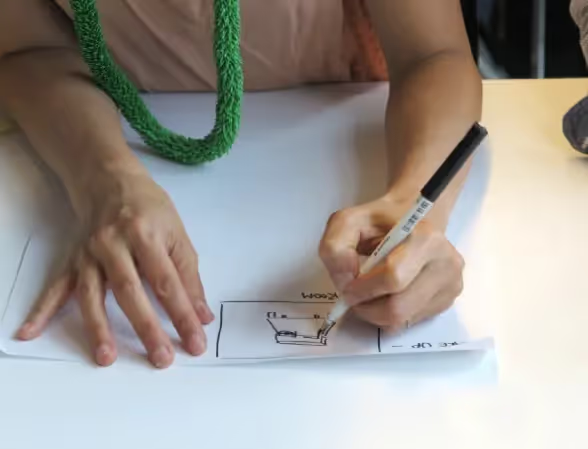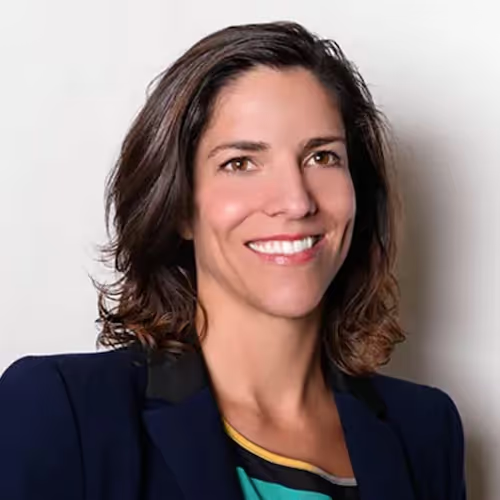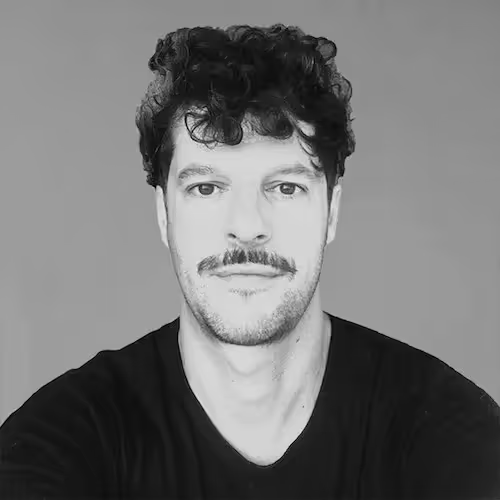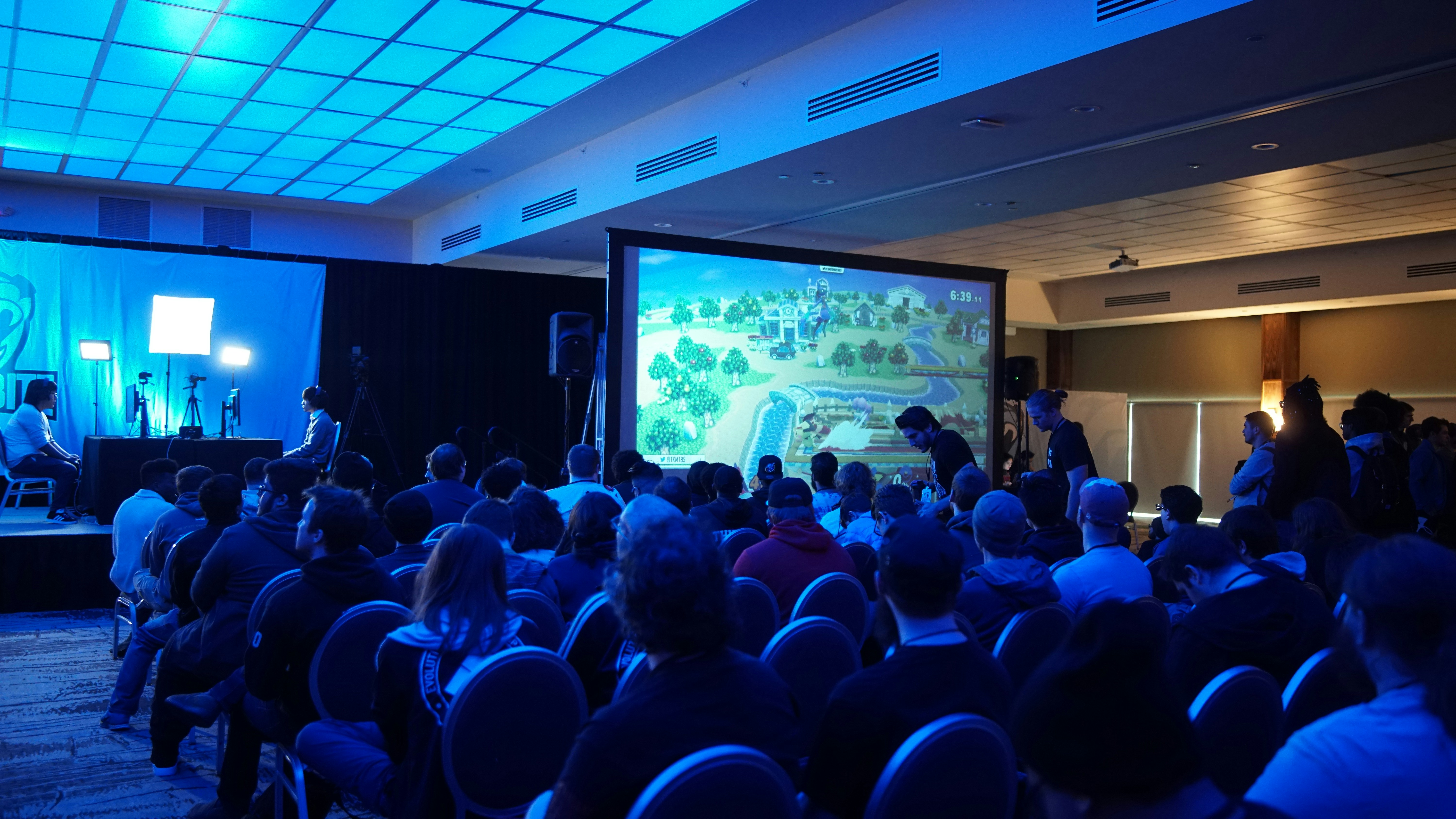Considering a career in human centered design? Experts share their tips on how to get started
This is HCD are collaborating with human centred design experts from Google, Fjord, Airbnb and other leading design teams to answer your questions. You may be new to design, considering a career in design or a refined practitioner, let us know, via Slack or email, what you’d like to know and we’ll reach out to them for answers.

Considering a career in human centered design? Experts share their tips on how to get started
This is HCD are collaborating with human centered design experts from Google, Fjord, Airbnb and other leading design teams to answer your questions. You may be new to design, considering a career in design or a refined practitioner, let us know, via Slack or email, what you’d like to know and we’ll reach out to them for answers.
Our first question is:
What are your top tips for people starting out in HCD?

Yasser Rashid, Head of User Experience, Google
California, USA
Make sure you spend time honing your craft. It’s important to learn how to use your tools inside and out, getting to grips with prototype for example is crucial in terms of bringing your ideas to life.
Your portfolio should only showcase your best work and that work should reflect you and your personality. Spend the time to really find what sets your work apart from others. To often I see generic portfolios using the same generic templates. Your portfolio is a reflection of you so make it unique.
Equally as important as the craft, spend time developing your communication skills. As a designer you’ll be asked to present your work and provide rationale on why you’ve made certain design decisions. Get comfortable speaking in front of an audience and walking people through your design process. This doesn’t mean explaining everything you did, just the key highlights.

Bronwyn van der Merwe, General Manager, Asia Pacific, Fjord
Sydney, Australia
Getting your first break is going to be the biggest challenge whilst you’re still developing your skills and a portfolio. So, getting involved in the design community and starting to build relationships is a really important place to start. Find communities, meet-ups, design events and conferences, turn up and start to make connections. Be proactive, get out of your comfort zone and talk to people so you can use those relationships to help you secure your first job.
The second thing is a portfolio, it’s very important especially when you’re starting out. You need to find opportunities to create portfolio pieces, it may not always be paid work or professional work. You may have to do some side or volunteer projects so you can start developing your first products and services.
It’s important to document the whole design process, not just the end result because design is a methodology and a process. The more interesting thing for me, as someone who’s hiring, is the process you’ve gone through and the different techniques you’ve used to solve different problems.

Shruti Kataria, Research Manager, Airbnb
Seattle, USA
I’m going to assume design is a broad term here. I’ll say for those starting off in user experience and more specifically user research, refining your storytelling skills is key. Not only do we need to tell users’ narratives in this role, to get started you have to tell your own story in a way that convinces potential employers to hire you.
Another tip is to be honest about what you do and don’t know, be it about a methodology or the limitation of a study you’re presenting. As researchers, our integrity is very valuable since we are tasked with representing our users.
Lastly, there’s no one way to get into this field and everyone’s path looks different. I suggest being open to trying different roles as you figure out what works best for you.

Dr Ollie Cotsaftis, RMIT University School of Design Industry Fellow and Lecturer, Founder and Creative Director of future ensemble and co-founder of Melbourne Speculative Futures, Melbourne, Australia
‘The world’s leading climate scientists have warned there is only a dozen years for global warming to be kept to a maximum of 1.5C, beyond which even half a degree will significantly worsen the risks of drought, floods, extreme heat and poverty for hundreds of millions of people.’ The Guardian, October 8, 2018.
‘Up to one million plant and animal species face extinction, many within decades, because of human activities, says the most comprehensive report yet on the state of global ecosystems.’ Nature, May 6, 2019
We’re reaching a point in history where designers have a choice to make. Will you lead a career maintaining the status quo of the world? Or will you try to get us out of the mess we’ve created for ourselves?
My advice to emerging designers is to first know themselves. What are your drivers? What are your values? What do you want to achieve? Following the steps of Bruce Mau or Dieter Rams, write your own manifesto and define what kind of designer you are or want to become.
Equipped with a vision, build a portfolio of relevant projects showcasing your skills and aesthetic and share them with the world when ready. Enter competitions, challenges and awards. Form a collective. Write a blog. Start a visual diary. And regularly revisit the curation of your online presence to remain relevant.
Finally — and monetary considerations aside — work with people that inspire you. Big brand experiences are great on CV but value-led small studios might be more aligned to your vision.
A great career is definitely rewarding; but does a great career matter when the world around us cannot sustain our livelihoods?

Lucy Chen, Head of UX, Insured By Us
Sydney, Australia
When I was starting out as a younger UX designer I pursued different challenges so I would have a diverse portfolio, and learn where my talents and passions lie. I worked at a tech research company in Australia, then a UX agency, then moved to the UK and contracted with a number of agencies and within the government. I think that path helped me choose subsequent roles so as to have the greatest job satisfaction and opportunity for learning. I learnt I prefer working in smaller teams with lightweight processes, so the project can move quickly and I can see results early. I learned that I am good at ‘innovation’, able to utilise research to drive ideation and produce novel concepts for clients.
I would definitely recommend working in an agency to experience the fast pace of work, the variety of projects, how to deliver and communicate your work, and learn the business development context.
To accelerate your learning, I also recommend having a mentor, or someone you feel comfortable going to with half-formed ideas and trust you’ll get good critical feedback from. I had a wonderful mentor who helped me get my first UX role and opened me to opportunities such as presenting at International Usability Day, and winning a prize to attend Apple WWDC. A mentor should give you honest feedback, and may connect you with people or opportunities. This person could be someone at work or in the UX community.
Another wonderful thing to do, which I’m still struggling to master, is to present your work. Again this is about getting feedback, as well as giving back to the community that supported you. Despite over 14 years of doing UX, I still find it challenging to show my work to a large audience. Talking about the problems, the mistakes I made, and situations where I felt out of my depth is confronting but also a valuable moment for personal growth. I find the feedback is overwhelmingly supportive, people appreciate honesty and sincerity and quite often say things like: “I’ve been in a similar situation, and it’s great to know I’m not alone. Here’s what I learnt…”.

Moritz Rossmanith, Service Designer, McKinsey Design, Stockholm
Keep Learning & Experimenting: Throw yourself into the deep end by taking on tasks that are out of your comfort zone. In fact, make sure you don’t always gravitate around one core topic that you’re good at but rather expand your skill set by taking on new work.
Try new ways, tools or approaches in getting things done. We’re living in an exciting time and by the time you finish your course or degree there’ll be new software, a new language or approach. So keep experiment and learning!
Stay Positive: Not every day will be a walk in the park, you’ll be under the pump with deadlines and stress. Just keep smiling, breathing and living a balanced life to remain positively charged.
It’s ok to say no and to push back: You might have learnt to never say no to a client or boss, but the truth is, your client or boss might want someone who can speak up to give them a new way of looking at the world. It’s probably better than when your customers complain about the same thing you’re trying to fix. We wouldn’t innovate if everyone swam the same way.
Send your questions to This is HCD via Slack or email and we’ll reach out to global HCD experts for answers.
To learn more about human centered design, check out the This is HCD podcast, follow us on Medium or chat with us on Slack!

.png)



